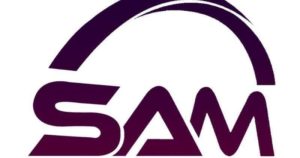MANILA, Philippines—The country’s rising inflation rate will return to normal once policy makers address supply bottlenecks that have pushed the consumer price index to its highest level in two years, according to economists and market watchers.
Pending more meaningful moves to increase the supply of certain food items in the local market, however, prices of basic goods and services would continue to accelerate beyond the government’s target range. The supply of pork was of particular concern because of several factors, among them an outbreak of African swine fever.
This was how Nicholas Mapa, ING Bank Manila senior economist, sees the coming days in terms of prices.
Mapa explained that financial markets have factored in the reality of higher inflation for the bulk of 2020 and have adjusted their expectations accordingly, easing pressure on the Bangko Sentral ng Pilipinas (BSP) for an immediate response.
“Looking at the similarities and the differences [between the current and previous bouts of high prices], we may be more comfortable in the notion that inflation will not likely run away as badly as it did back in 2018,” he said in a note to media.
“Market players appear now more ready to accept higher levels of inflation for the meantime and this will challenge BSP’s ability to hold inflation expectations a little bit better, something that may have gotten away from them back [during] the last breach,” he added.
The economist said that the relatively strong Philippine peso and the prevailing low interest rate regime around the world is also playing in favor of the central bank’s current policy of “benign neglect”.
BSP Governor Benjamin Diokno recently said that monetary planners are pausing further action against the spike in inflation rates because the current episode being experienced by the country is caused by supply factors that cannot be addressed by central bank action.
Inflation spikes are conventionally addressed by raising interest rates and draining the market of excess liquidity.
Instead, Diokno has repeatedly urged other policy makers in government to use other interventions that could ease inflation like allowing more imports of pork to ease supply bottlenecks.
ING’s Mapa noted that the central bank has conveyed to the market its expectation that the inflation rate will remain elevated for at least the first three quarters of 2021 before it returns to normal starting in the fourth quarter.
“Truth be told, the peak of inflation may not be upon us just yet, but the turn of the tide and how quickly inflation returns to target depends largely on the government’s response to help augment supply before inflation gets completely out of hand,” he said.
He stressed that the current bout of high prices is fundamentally different from the one experienced in 2018 that was precipitated by a rice shortage.
“BSP for its part will likely keep up monetary support for as long as it can, hoping the cavalry comes along to help save the price battle from spilling over into the growth battle as well,” Mapa predicted.


